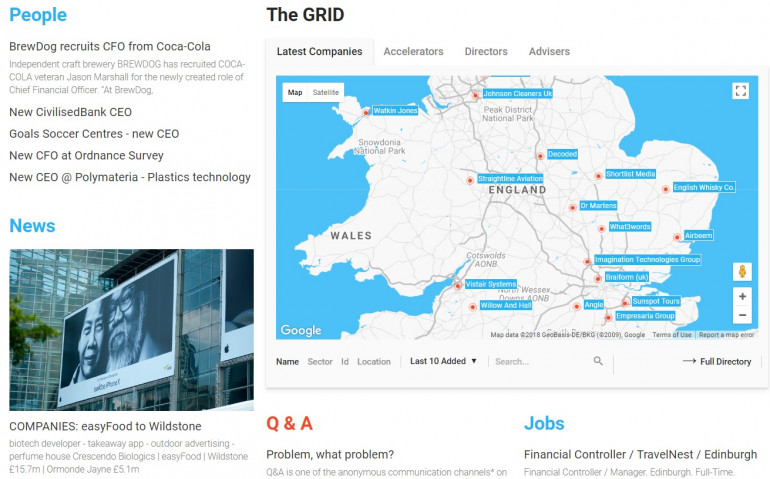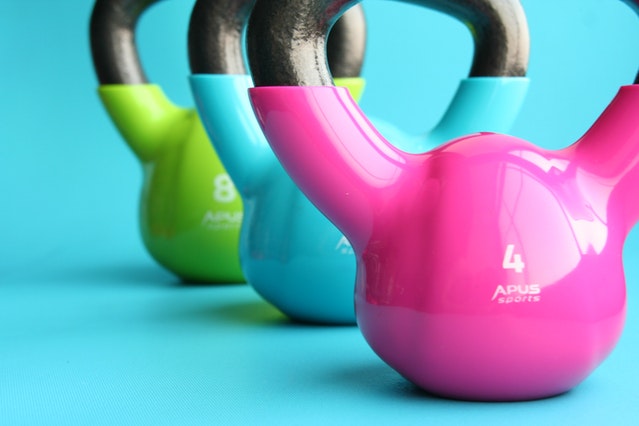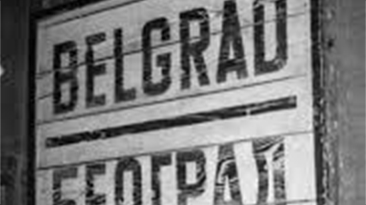Published by Directorzone Markets Ltd on June 6, 2016, 9:00 am in News, Other
Wednesday January 1st 2020
News about 7 UK growth companies and/or accelerators + turnover in the GRID marketplace, 29th May – 4th June 2016:
GL | Forma | The English Cream Tea Company | Air & Grace | Lintbells £7.2m | Heliex Power £2.7m | Accrol £101m
GL: Winning grades for £210m exam tester | Daniel Dunkley, The Sunday Times. May 29.
DZ profile:
Business: schools exam testing company which runs education and mental health assessments in primary and secondary schools. GL runs 6m online tests a year, focusing on literacy, numeracy and cognitive abilities. Its tests are also used to identify children and young adults with special needs. Previously called Granada Learning, it was owned by broadcaster ITV until 2006.
ICB Classification: 2791 Business Support Services
Location: London
Financials: expected to deliver underlying profits of £15m this year
Investment: owned by the Bahrain private equity house Investcorp, former backer of luxury brand Gucci, which bought GL for about £50m in 2012 from buyout business Veronis Suhler Stevenson
News:
1. Is on the verge of being sold to Los Angeles buyout firm Levine Leichtman Capital Partners for £210m. Investcorp is in advanced talks with Levine this weekend after putting its education offshoot up for sale late last year and is set to make a handsome return: insiders said GL would fetch between £200m and £210m.
2. Levine Leichtman has targeted education assets in Britain in recent years. In 2014, the Californian firm bought MPW, a private higher education company, which was sold on early this year.
FORMA: Cannabis boss smokes out backers | Peter Evans, The Sunday Times.
DZ profile:
Business: medicinal cannabis business. Forma has already bought retail outlets and farms in southwest America. The first of these will open this summer. It will not sell the cannabis for recreational use — which is permitted in five US states, including Colorado.
ICB Classification: 4577 Pharmaceuticals
Founder: Former Tesco and Facebook executive Gavin Sathianathan: head of Facebook’s retail business in Europe before being poached to run the ill-fated Blinkbox, Tesco’s online-streaming service. Blinkbox was sold to TalkTalk last year.
Investment: Earlier this year raised more than £2m from investors.
News:
1. is tapping wealthy families and biotech funds for £10m to expand his London-based in America. Forma will use the cash to buy up cannabis plantations in California and to develop treatments for conditions such as epilepsy, and diseases including Crohn’s and Alzheimer’s.
2. Medicinal cannabis is legal in Canada and 24 US states. Demand is forecast to reach $29bn (£19.8bn) by 2020 as more markets legalise the substance. Last month, Germany proposed a law to introduce the medicinal use of cannabis.
Exports really should be everyone’s cup of tea | Kiki Loizou, The Sunday Times. May 29.
THE ENGLISH CREAM TEA COMPANY
DZ profile:
Business: delivers fresh scones and bulging hampers direct to customers. One of the company’s selling points is Malyon’s focus on high tea etiquette, which has had countries including America, Canada, China, Japan and Indonesia begging for stock. Investors in the Middle East have asked the couple whether they would consider opening traditional British tearooms and an etiquette school over there.
ICB Classification: 5337 Food Retailers & Wholesalers
Launched: 2011
Location: Dunmow, Essex
Founders: Jane Malyon, 59, with her husband, Roger
AIR & GRACE
DZ profile:
Business: luxury shoe business. Already sells to Germany and Japan. Sales are up a 400% in a year, convincing the founder that overseas expansion is the way forward and is now focusing on wooing buyers in Scandinavia, France and America.
ICB Classification: 3765 Footwear
Launched: 2014
Founder: Claire Burrows, 44,
Investment: She has funded the company with £150,000 from winning the Worth Foundation Fund competition and £25,000 from Mind Candy founder Michael Acton Smith, who took a small stake in return for his investment.
News: Burrows has patented a technology allowing her to manufacture footwear at a site in Portugal with the materials used in trainers, to make her shoes more comfortable. She
LINTBELLS: Charlie the lab proved my idea wasn’t barking |Laura Onita, The Sunday Times
DZ profile:
Business: the company has expanded into nutritional supplements for cats and horses. The products, formulated to treat joints, digestive systems and coats and skin, are now sold in more than 15 countries. There are plans to grow exports, particularly in southeast Asia.
ICB Classification: 3577 Food Products
Launched: 2006
Location: Halls Green, near Hitchen, Hertfordshire. Has also recently opened a research facility in Marlborough, New Zealand, where ingredients such as green-lipped mussel powder are sourced.
Founder: John Howie, 43, an animal lover and scientist, and friend, John Davies, 56 – both ex-Monsanto
Staff: team of 46 staff includes 26 nutritional specialists, who work with the Royal Veterinary College in London to develop new supplements.
Financials: started up Lintbells with £140,000 of savings and a £200,000 loan from the bank. reported profits of £2m on £4.6m sales in 2014. Revenues are expected to hit £7.2m this year.
Investment: Howie and Davies own 80% of the business and the rest is split between Howie’s brother James, Lintbells’ veterinary director, and a handful of business angels who invested £100,000 in 2012.
News:
1. Last month the business won a Queen’s Award for Enterprise in the innovation category.
2. When Charlie the chocolate Labrador started having problems with his joints, John Howie came up with the idea of adding golden flax and starflower oil to the dog’s diet. The results were remarkable and it made Charlie’s owner and Howie’s friend, John Davies, wonder whether there might be money to be made from natural remedies for pets. Forma carried out a trial with 50 dogs and initially focused on developing natural products for dogs.
3. Rather than selling direct to pet owners, they initially tried the wholesale route. “Our products were sitting in a warehouse and we were running out of money,” said Howie. The bank gave them an ultimatum: “If you come back with a good plan in the morning, we will back you; if you say you’d like to stop, we will write everything off.” Howie recalled: “It came close, but we said we were going to give it one last crack. We didn’t pay ourselves for four years.”
HELIEX POWER: Start-up envisages second golden age of Scottish steam | Mure Dickie, FT. May 30
DZ profile:
Business: system for capturing industrial waste energy - shipped as a self-contained blue steel box that can be plugged into existing steam and electricity systems. In some cases it can take the place of existing equipment needed to reduce steam pressure for industrial processes, while helping to meet a factory’s electricity needs or feed power back to the grid. The company has installed 38 machines in the UK and overseas. A Heliex machine is already humming away happily at the Royal Alexandra Hospital in Paisley, west of Glasgow, where steam from a new biomass boiler is used to generate 108kW of electricity before being fed into a district heating system.
ICB Classification: 2757 Industrial Machinery
Location: an East Kilbride technology park south of Glasgow, Scotland - once the site of the UK’s National Engineering Laboratory.
Founder: Prof. Dan Wright, chief technology officer
Staff: CEO Chris Armitage
Financials: Revenues jumped to £2.7m in the year to March from £900,000 in 2014-15 and Chris Armitage, chief executive, says he expects them to double again this year and next.
Investment: It recently raised a total of £2.2m from existing shareholder BP Ventures, an arm of the international energy major, and a private equity fund owned by Irish utility ESB. Combined with a matching £2m investment from the state-owned Scottish Investment Bank, the round took to £16.4m the investment in the company.
News:
1. A new approach developed at London’s City University is used to tap the energy in relatively low-temperature “wet” steam, a common byproduct of many industrial processes. While turbine generators can efficiently generate electricity from high-temperature “dry” steam, they cope badly with pressure fluctuations associated with wet steam and suffer serious erosion from the water droplets it contains. Heliex uses instead a much more robust screw expander, a pair of rotating screws that transform the energy in the wet steam into movement that can drive a standard power generator or other machine.
2. The laboratory was where widely used “steam tables” for calculation of pressure, heat and volume were developed nearly half a century ago, itself an echo of the 18th and 19th century innovation of Scottish steam pioneers such as James Watt.
3. Competition in seeking to use screw expanders to tap wet steam power:
-- China’s Kaishan Technologies markets a system it says can generate 30 per cent more power than a small turbine. --- Langson Energy of the US in April installed a 250kW “steam machine” at an ethanol plant in South Dakota.
But Heliex says it is well ahead of its competition.
ACCROL: bucks trend with Aim listing | Andy Bounds, FT. May 30
DZ profile: Accrol Group Holdings Plc
Business: Toilet roll maker. Accrol’s business is entirely domestic and its success is a reflection of the rise in discount retailers. It provides own label brands to most of the retail chains. The company has a 35 per cent share of the discount tissue market and 7 per cent of the overall tissue market in the UK, which is worth about £1.6bn. The discount market is growing at 10 per cent a year. Its big competitors include Kimberly-Clark, owner of the Kleenex and Andrex brands, and Sofidel, the Italian maker of Nouvelle. About 71 per cent of Accrol’s products are private label, so it could be vulnerable to a price squeeze by retailers.
Launched: 1993
Founders: husband and wife Jawid Hussain and Mahroof Begum
Staff: son Majid Hussain is chief executive. They have recruited Steve Crossley, who has worked for food businesses Unigate and Northern Foods, as the new chief executive. Peter Cheung, chairman
Financials: Accrol has posted seven years of continuous financial growth since the 2008 recession and reported revenues of £101m for the year to April 30 2015. There is about £20m of debt, which will not be cleared by the flotation proceeds. Pre-tax profit was £5.8m, against £7.6m the year before. However, that included a £4.5m hit from writing off a loan to Phoenix Court, a separate company controlled by the Hussains that owns the company’s offices and factory, as part of the payment to the family for its stake. They will remain the property owners. Operating profit was £10.8m, up from £8.2m.
Investment: Private equity owner NORTHEDGE CAPITAL and the founding family each control 46.25 per cent. NorthEdge paid £21m for its slice in July 2014, structured as a loan note. The aim is to raise £60m from selling half the company — giving NorthEdge investors a nice £9m payday in just two years.
News:
1. Plans to list on London’s junior market on June 10 and is seeking a valuation of about £120m.
2. Accrol itself has invested £18m over four years in new equipment to improve quality and capacity. It now has contracts with Tesco, Asda and Wm Morrison, three of the big four supermarkets, as well as Aldi and Lidl.
3. it will soon require a second factory to keep up with demand — the 350,000 sq ft site in Blackburn turns out 17m units a week.
UPDATE:
Accrol’s ‘sweet spot’ billing turns sticky | Kate Burgess, FT. October 9. 2017
Accrol … rolls out 118,000 tonnes of paper a year, supplying own-label loo rolls, face tissues and kitchen towels to supermarkets, wholesalers and discounters.
4. Last week, Accrol’s shares were suspended at 132p and it began talks with its banks over funding. It emerged that the company is in so many ways not the business it was billed as. In June last year, as the founding Hussain family and private equity backers Northedge prepared to sell down their stakes, Accrol was being pitched as a staple for investment portfolios. Sixteen months later, Accrol is warning investors that costs have risen, margins are down, earnings will be a lot lower than expected, debt will be higher and next year’s dividend is under review. Last week, the company admitted pulp and parent reel prices had risen strongly and it had not been able to pass the costs on to customers. Who knew discounters and supermarket chains would be so tight? The sector is feeling the pinch but Accrol more so than its main rivals, the multinational brands which account for three-quarters of the UK market in household tissue.
5. And there is the matter of a health and safety incident when a worker lost part of a digit early last year.In the admission document to the Aim, Accrol stated there were no “governmental, legal or arbitration proceedings . . . pending or threatened” which may have a “significant effect” on the group’s financial position or profitability. Last week the company said the fine over the incident would be worse than first thought and would have a “material impact” on its cash position.
6. The company seems to have misjudged much on many levels. Which may account for the abrupt departure last month of its chief executive of slightly more than a year. Gareth Jenkins, the new chief executive, has now begun a “wide-ranging review” to improve margins and financial performance. Meanwhile, the board is staring at Accrol’s cash levels and talking to its banks about the terms of its covenants and funding needs. Viewed through one lens, it is hard to see why £20m in net debt would throw a group whose equity is worth more than £120m into such disarray. That is 1.25 times the company’s declared adjusted earnings before interest, tax, depreciation and amortisation. However, the group has hefty working capital requirements. And with margins and cash falling and costs rising, the group’s net borrowings will rise. Probably sharply.Peter Cheung, executive chairman








